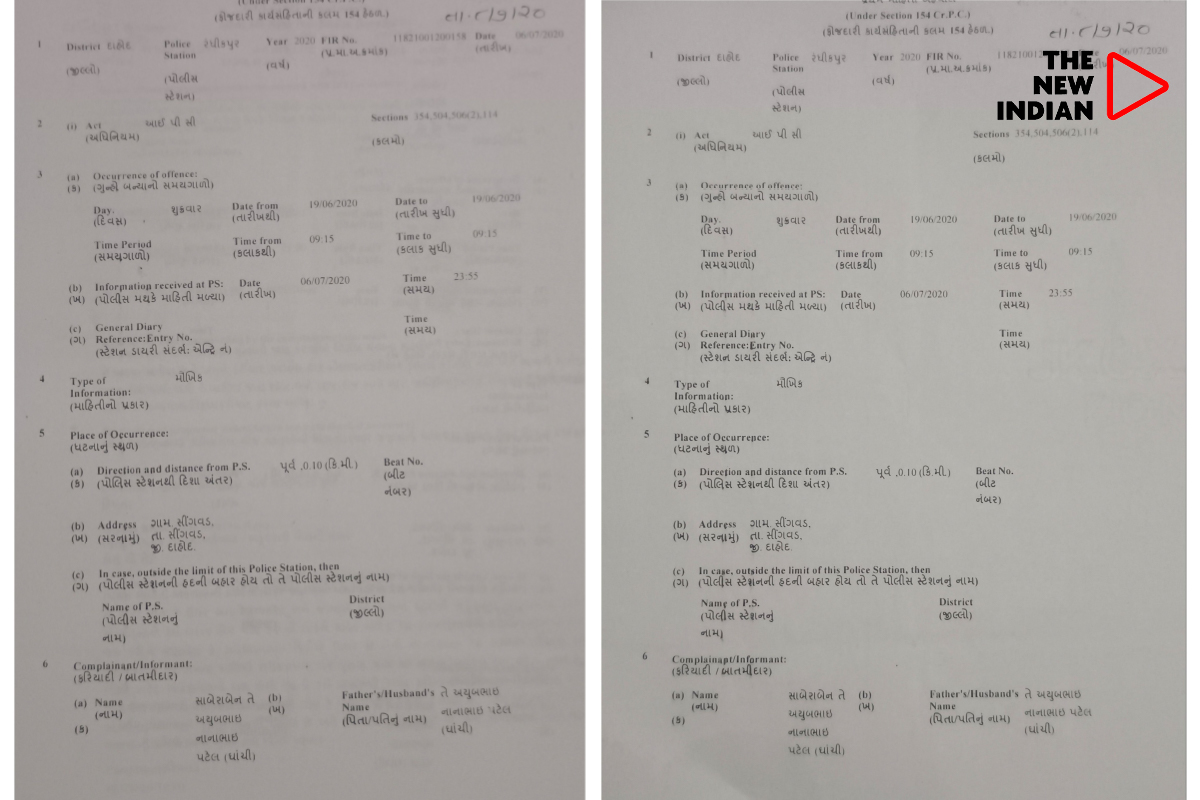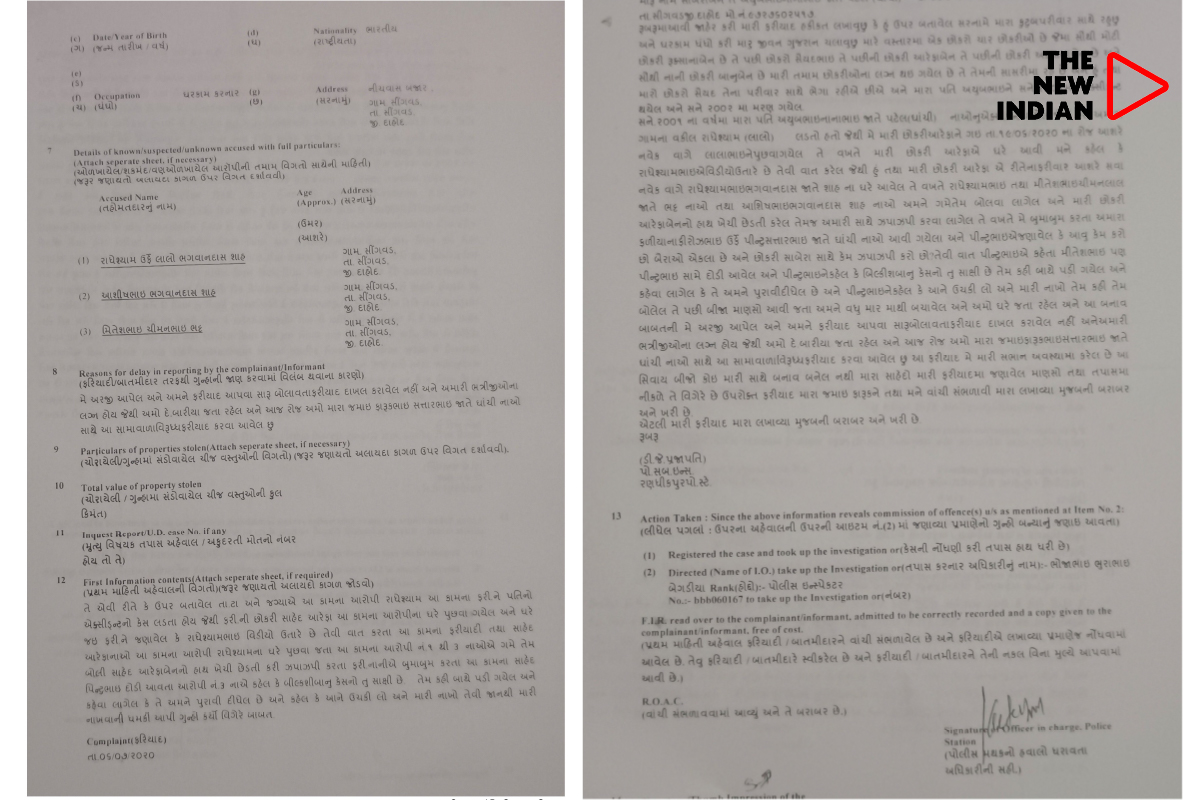All 11 convicts in Bilkis Bano’s rape and murder of her three-year-old child walked out as free men on India’s Independence Day for their alleged good behaviour.
However, it has come to light that two of them were booked in the case of molestation and threatening the witness while on parole during their 14-year jail term.
The FIR was registered at Randhikpur police station in Dahod district on July 6, 2020. The two convicts in the Bilkis Bano case – Mithesh Chimanlal Bhatt and Radheshyam Bhagwandas Shah – and one of Radheshyam’s brothers, Ashish, were booked under sections 354 (assault or criminal force with intent to outrage modesty), 504 (intimidation), 506 (2) (threat to kill) and 114 (abetment) of the IPC.


The FIR was filed on the complaints of one Saberaben Patel, and a witness in the Bilkis Bano case, Pintubhai. It says Mithesh, Radhesyam and Radheshyam’s brother Ashish, molested and threatened Saberaben, her daughter Arfa and witness Pintubhai in connection with the Bilkis Bano case. At this point, both convicts were on parole.
It has been said that some of the convicts have also threatened the other witnesses related to the case when they enjoyed their parole and furlough. The two such complaints were also lodged with their local police stations.
The affidavit submitted by the Gujarat court before the Supreme Court also mentioned an FIR of molestation which was registered against Mithesh in Randhikpur police station. Interestingly, despite this FIR, Mithesh got an extension of 281 days of parole.
As per the affidavit, the chargesheet in this molestation case was also filed and the case was under trial in the court.
The affidavit, a copy of which is with The New Indian, also suggested that the convicts had enjoyed long days of parole and furlough during their conviction period. According to the affidavit, at least 10 out of 11 convicts had 1000 days of parole and furlough.
As per the affidavit, Mithesh enjoyed – 234 days of furlough and 771 days of parole. Radheshyam enjoyed – 154 days of furlough and 895 days of parole.
The affidavit submitted before the court also said that the convicts had not indulged in any wrongdoing during their period in jail.

